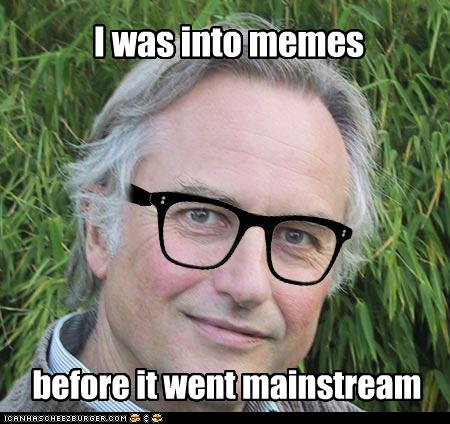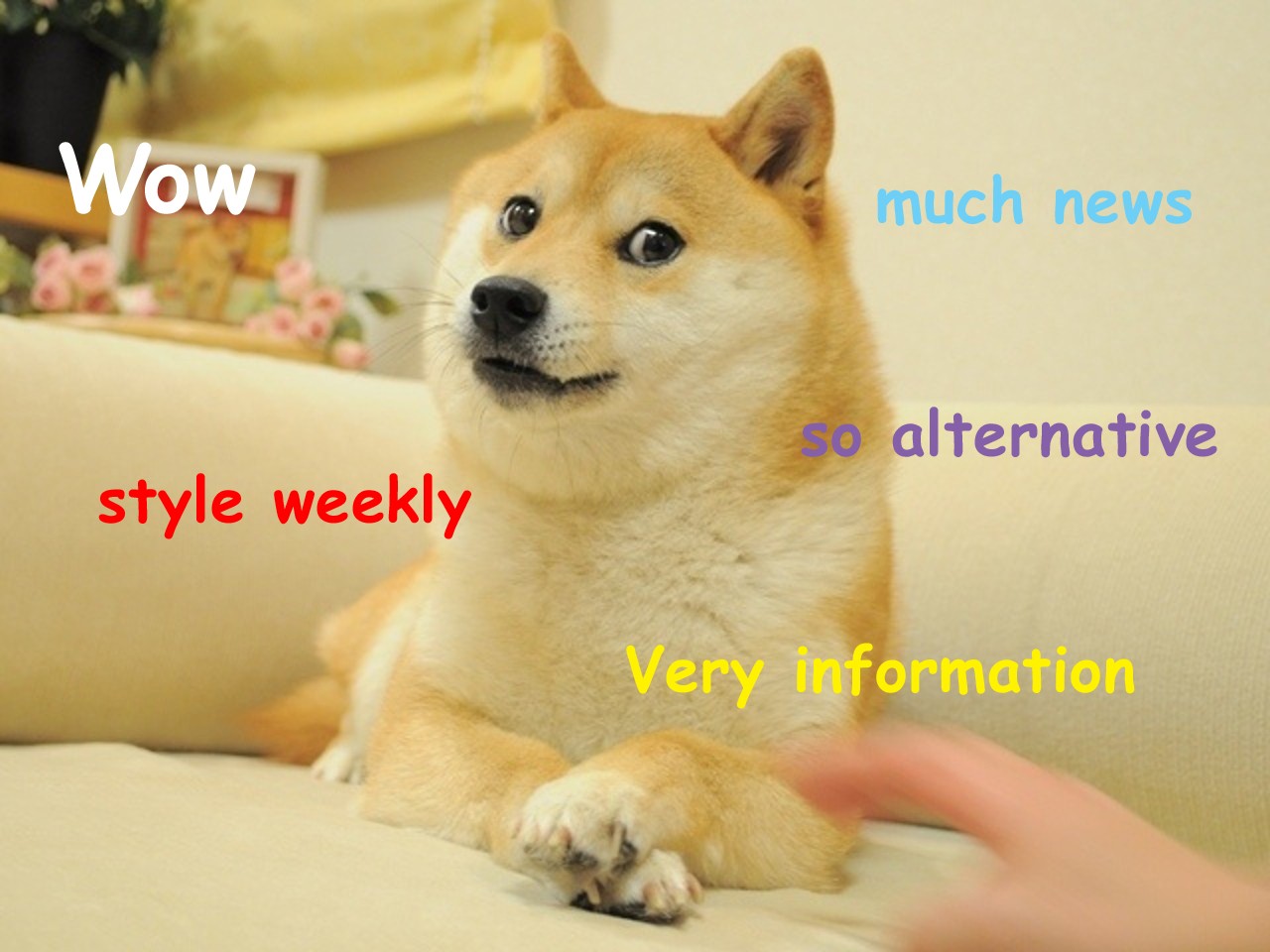Memes, virtually everyone with access to the internet is familiar with them. Even my grandmother has unknowingly sent participated in meme culture sending us things she sees on the internet. While it is not hard to identify a meme on your iPhone, defining a meme conceptually proves to be a challenge. What really is a meme? A funny picture? Purposefully misspelled text layered over an image? Categorizing memes in this fashion really does not accomplish anything, because tomorrow when you go through your Instagram explore page a new style of meme will appear.
Surprisingly memes hit the stage before the internet even existed. In Richard Dawkins book, “The Selfish Gene”, he coined the word meme, explaining it as a unit of cultural information that is easily identified and spreads in the same fashion of a virus. Once a person is introduced to an“infectious” meme, its simple identifiable pattern is engrained into one’s brain and then they became a node of contagion. Furthermore, one might change the meme and add their own twist, if one’s twist is successful then the new meme continues to spread, giving them a Darwinist quality.
While Dawkin’s coined the term “meme”, in digital culture they have a different connotation. Internet memes, as described by Limor Shifman, are jokes, rumors, videos, or websites that are easily spread and flow around the internet. They are basically digital media with an embedded infectious quality as Dawkins describes. Common examples are Pepe the Frog, Doge, and there is even a meme about Richard Dawkins himself.



(for the rest of this blog the word meme will refer to internet memes unless stated otherwise.)
Memes have flourished on the internet. The ability to post a meme online where thousands can view drastically increases their ability to spread. In fact, I believe memes exemplify spreadable media. Their potential to be circulated throughout the internet, regardless of the feelings of the creator or the focus of the meme, their viral quality nearly forces them to be spewed around the internet. Looking back to Dawkin’s definition of a meme, a singular cultural unit that spreads contagiously, the application of “spreadability” works quite nicely. All active members within a society can identify simple patterns seen in humanity, this is the power of memes. Like a child repetitively using a new word they learned, members of society proudly distribute memes to others. I believe the prior analogy is important to understanding why memes spread, the innate qualities of a human brain value identification and learning. One does not need much context to understand most memes, once identified one will be able to recognize spinoffs and other applications of it.
You might notice the negative word choice used when speaking of memes, calling them infectious and viruses. Truthfully, I find this rhetoric appropriate. Identifying any value that memes add to culture is hard, furthermore identifying the negatives is easy. For instance, memes can be offensive, racist, and even damaging to one’s quality of life if they are the victim of a meme. Depending on one’s opinion on memes, they might say they are the evolution of communication or the degradation of it. If you hop on Twitter and scroll through the replies to a politically charged tweet, without a doubt you will find memes. They are truly found at every level of society, they do not discriminate between children or adults, those subservient or superior. In the following posts I will explore a few cases of prevalent memes in U.S.society; enjoy.
Godwin, Mike. “Meme, Counter-Meme.” Wired, Oct. 1994. http://www.wired.com, https://www.wired.com/1994/10/godwin-if-2/.
Heylighen, Francis, and Klaas Chielens. Cultural Evolution and Memetics. p. 27.
Jenkins_intro.Pdf.
“Know Your Meme.” Know Your Meme, https://knowyourmeme.com/. Accessed 2 Oct. 2018.
Shifman, Limor. “Memes in a Digital World: Reconciling with a Conceptual Troublemaker.” Journal of Computer-Mediated Communication, vol. 18, no. 3, 2013, pp. 362–77. Wiley Online Library, doi:10.1111/jcc4.12013.
Winkie, Luke, and Brian McManus. “Memes Have Finally Made Itto the Museum.” Vice, 17 Sept. 2018,https://www.vice.com/en_us/article/j54897/memes-have-finally-made-it-to-the-museum.